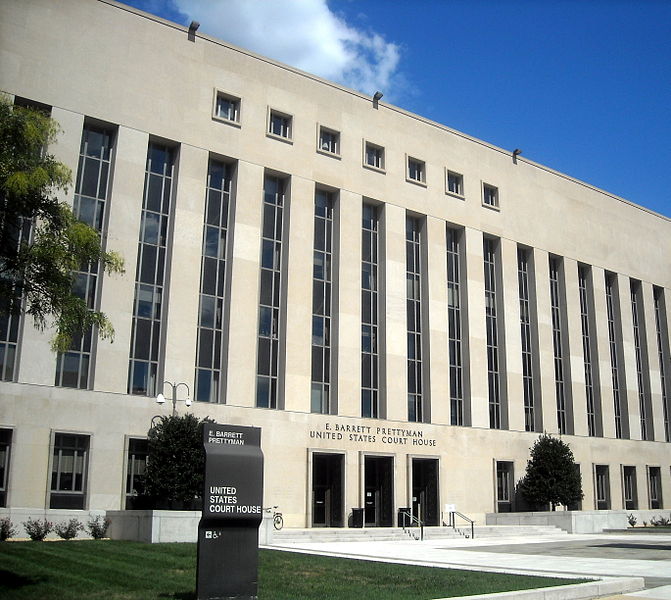Staff Report –
The case that could have done in Trump for good came up in federal court in Washington today, and it does not look good for any kind of active prosecution before the Nov. 5 election.
The federal judge accused former President Donald Trump’s lawyer of more stalling tactics. But since any decision she makes will automatically be appealed we can all kiss goodbye any chance of seeing Trump on trial for his seditious conspiracy and inciting an insurrection against the United States government on Jan. 6, 2021.
Accord to on the ground reporting by The Washington Post, and other news outlets, Trump lawyers sparred with Judge Tanya Chutkan in a “testy, hour-long hearing” over the direction and pace of D.C. election interference case. She indicated the election schedule wasn’t part of her calculus.
In the first hearing in the case since the Supreme Court ruled that presidents are immune from prosecution for “official acts,” Trump’s lawyers blasted the prosecutions proposal to resume the proceedings by first letting the government make a presentation on what Trump conduct could still be considered criminal, his “personal acts” outside the bounds of his official duties.
The defense argued this would be “fundamentally unfair” and at odds with the Supreme Court’s ruling on presidential immunity. But the judge fired back that the defense seemed more focused on preventing meaningful developments in the case before the Nov. 5 election than honestly adjudicating the facts of the case.
“It strikes me that what you’re trying to do is affect the presentation of evidence in this case in a way so as not to impinge on the election of the president,” Judge Chutkan said. “This court is not concerned with the electoral schedule.”
In the conservative Supreme Court’s 6-3 decision, the court sent the case back to Chutkan to work out whether Trump could still be prosecuted based on his private conduct, or for official acts under narrow exceptions. After the ruling, prosecutors filed a superseding indictment, charging Trump with the same four counts related to his alleged attempts to overturn the 2020 election but removing some allegations that might run afoul of the Supreme Court’s decision.
The key point in dispute was the request by prosecutors in special counsel Jack Smith’s office that, no matter the schedule, Chutkan should resolve questions about the boundaries of Trump’s immunity first, or at least at the same time as other defense challenges. Otherwise, prosecutors warned, the case would be paralyzed by serial appeals of each decision back to the Supreme Court, when Trump’s attorneys could challenge every aspect of the new indictment, even evidence to be admitted at trial, according to U.S. Attorney Thomas Windom from Alabama. This would delay pretrial proceedings into late 2025, he argued.
“We think all immunity decisions should be handled at one time, simultaneously,” he said. “We know there is going to be interlocutory appeal. We just want to limit it to one.”
Trump lawyer John Lauro assailed that plan, saying defendants typically have the right to challenge multiple legal issues raised by their prosecution, and that letting the government go first and bundle all immunity-related challenges would be “enormously prejudicial to President Trump.”
Lauro tried to argue that the indictment itself was fatally flawed, since it was brought by a grand jury that had heard evidence about the Vice President that may be off limits, or not, including Trump’s conversations with Mike Pence trying to get him to delay certifying the Electoral College votes on Jan. 6, the constitutional deadline. The special counsel’s office has emphasized Pence’s role as president of the Senate, however, rather than his White House duties, conversations they say should be deemed admissible.
Chutkan appeared open to Windom’s suggestion that the government could be ready to move forward with its summation of Trump’s prosecutable conduct in as little as three weeks, by late September.
Windom said the government was prepared to set out a “comprehensive brief” spanning all the evidence prosecutors would rely on for trial — a rare public airing of facts required by the immunity litigation that prosecutors normally would seek to keep under wraps. That brief could include previously disclosed and undisclosed information, such as transcripts of witness statements to a grand jury, prosecutors and the FBI, and other exhibits.
Some material would be expected to be sealed, but any revelations in public or unsealed portions could draw renewed attention to the case in coming weeks before the election.
“We can all walk and chew gum at the same time,” the judge said. “You may be an originalist, but I’m a trial judge,” she said to the defense. “I don’t believe that is what I was instructed to do by the Supreme Court.”
When Chutkan said she did not want to hear any more rhetoric about the upcoming 2024 presidential election, Lauro “bristled,” according to the Post.
Chutkan appeared unmoved by Lauro’s claims that the next two months mark a “sensitive time” for Trump ahead of the election and rejected his suggestion of an “unseemly” rush to judgment. There had been no such thing in her courtroom in a case that had been frozen since December, she said: “I am definitely not getting drawn into the electoral process. … That’s not something I’m going to consider.”
She also appeared skeptical of the one issue Trump’s side wanted to raise one week before the election, challenging whether special counsel Smith was legally appointed.
Supreme Court Justice Clarence Thomas suggested such a challenge in an aside in the high court’s immunity ruling. U.S. District Judge Aileen M. Cannon in Florida threw out a separate case over Trump’s alleged mishandling of classified materials, ruling that Smith was unlawfully appointed — a decision criticized by outside experts as breaking with precedent. Smith has appealed to the federal circuit court overseeing Florida.
Chutkan said that Trump failed to file that particular challenge last year in a timely way, and noted that the U.S. Circuit Court of Appeals for the District of Columbia Circuit has previously sided with the U.S. government. She also said that she didn’t find Cannon’s opinion “particularly persuasive.”
She would allow Trump to file such a challenge, she said, and that she would consider the numerous issues and set a schedule as soon as possible.
Whatever schedule she sets, “the case still has a long and winding legal road ahead,” the Post concludes. The judge noted that it would be an “exercise in futility” to set a new trial date, since whatever she decides regarding immunity-related issues would be appealed and put the case on hold again.
According to New York Times coverage of the case, Judge Chutkan said the November election was simply “not relevant” to the timing of how this case against should unfold.
“I am definitely not getting drawn into an election dispute,” she told Trump’s lawyer.
The hearing opened with a brief re-arraignment of Trump, who was not in the courtroom but in New York campaigning. Through Lauro, Trump pleaded not guilty to the revised indictment.
The Supreme Court had ordered Judge Chutkan to undertake the complicated task of sorting through a newly revised indictment and deciding which of its many allegations need to be tossed out under the immunity decision and which can survive for trial.
While the specific charges were the same as in the original indictment, some parts — particularly evidence about Trump’s attempts to strong-arm the Justice Department into backing his claims of election fraud — were removed. Other parts of the charges were tweaked to reframe them as examples of what prosecutors called private “electioneering activity.”
Judge Chutkan, an appointee of former President Barack Obama, sparred at one point with Lauro about whether he should even be allowed to challenge Smith’s appointment in her courtroom. She remarked that she did not find the argument “particularly persuasive” and pointed out that there was binding precedent that special prosecutors are in fact lawful from the federal appeals court that oversees her.
___
If you support truth in reporting with no paywall, and fearless writing with no popup ads or sponsored content, consider making a contribution today with GoFundMe or Patreon or PayPal.














